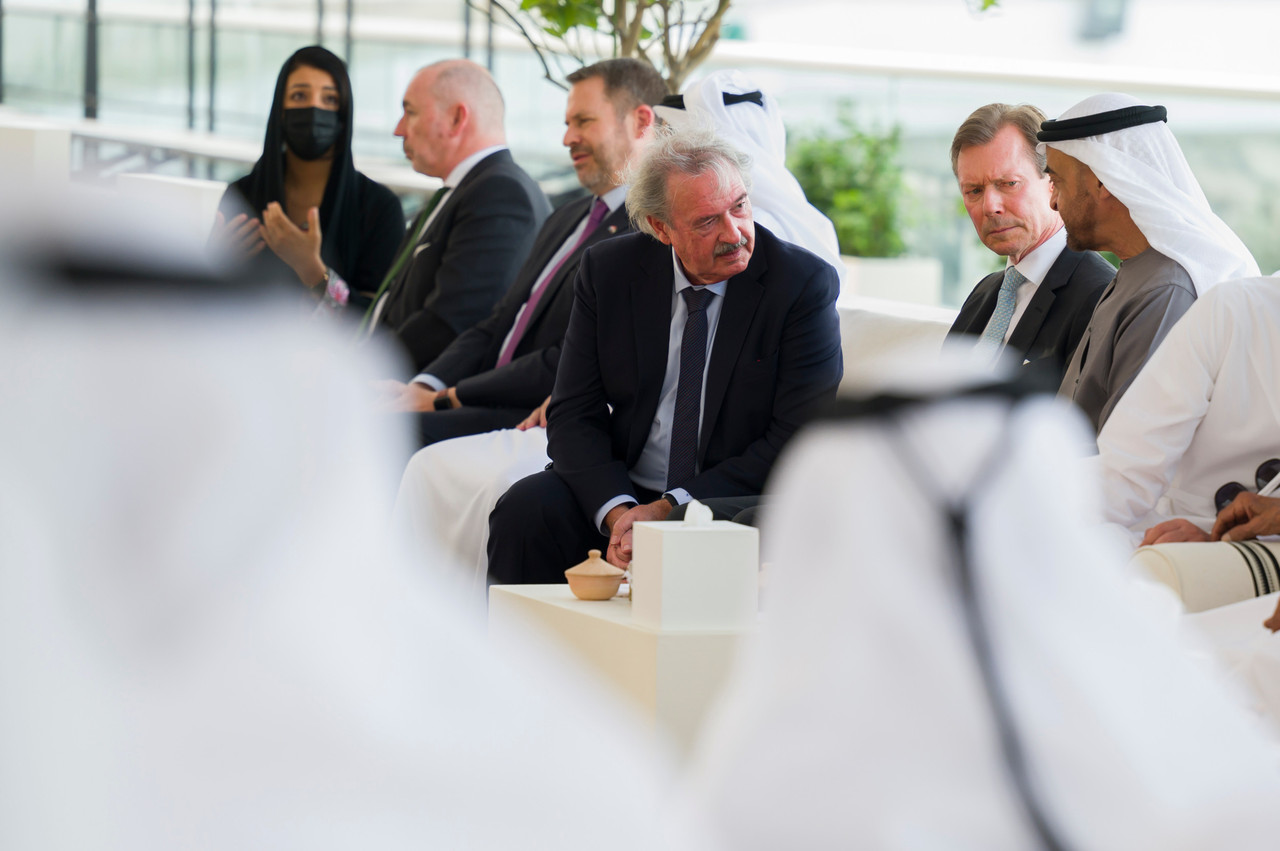You were in the United Arab Emirates for three days to accompany Grand Duke Henri, but you have also been working a lot on the Ukrainian dossier. What is the situation in Luxembourg regarding the reception of refugees?
Jean Asselborn: We have received about 3,500 people, mainly women and children, who alone make up 38% of the arrivals. This is in addition to the 5,000 people who constitute “normal” immigration. 3,500 Ukrainian applications are being processed.
What about accommodation, which needs to be provided urgently?
Fortunately, we can count on 600 beds at Luxexpo, in Hall 7. 180 people are currently accommodated there. It's big, the children have room. But this can only be temporary and we have to think about the future. In Contern we have 500 beds, but for security reasons they will only be available in six to eight weeks. There are other solutions in 17 other sites, in hotels, campsites... But when the tourist season starts again, we will have to find other solutions.
How many people have been granted temporary protection?
600 have obtained this status, which is valid for one year and renewable for another year. 70 to 80 cases are being processed per day. There are 13 people working there, as well as translators, the judicial police and others.
Many people are involved, but so are companies. How can they do it effectively?
You have to turn to the Red Cross and Caritas, or to Zesummen. They are integrated operators who know what is needed. I understand the spontaneous surge of generosity, but it must not end badly. We see families arriving at Luxexpo who have been in hostels for some time before things start to go wrong.
All these lies... It's a big disappointment. I am disgusted.
Are you worried about the geopolitical situation?
Yes, I have questions and I am worried. I know Moldova and Georgia well... I have fears.
With this war, can we speak of a failure of European diplomacy?
Certainly, because the rules of diplomacy have not worked. It is in fact a failure of democracy in general. Diplomacy is a story that is played out between men and women. Who can we currently do diplomacy with in Russia?
As an experienced foreign minister, you must be very affected by this situation...
All these lies... It's a big disappointment. I am disgusted. We did everything to find a solution, we had talks in the Nato-Russia Council, but nothing worked.
What are the ways out of the conflict?
It is obvious that Nato is not going to intervene militarily, it is not possible and it is very sensitive. For example, if we set up a no-flight zone in Ukraine, who will monitor it? Of course it will be Nato, but with what consequences? Sanctions have to work.
Ukraine is making positive gestures, and no longer wishes to join Nato?
But there was no question of it. It was mentioned in 2008, but never implemented. This Nato affair is a pretext used by Putin, that's all.
You met Vladimir Putin several times...
Twice, in Luxembourg and in Moscow, in 2008. I remember that there were two things that hurt him. Firstly, he told us, the fact that Russia was not recognised on the international scene as it deserved. Secondly, he complained about Gorbachev, saying that because of him millions of Russians no longer had a pension. I think that all this has stayed with him for years…
Putin is the pure product of a system that is no longer democratic
How do you view him now?
Putin is the pure product of a system that is no longer democratic, where the freedom of the press no longer exists, where the justice system is no longer independent... He has gone from being a reformer to what he is today. I have the same impression with Erdogan, whom I met for the first time in 2004 and who has changed a lot.
With Putin, we can guess that there were moments of change. First Kosovo, then the war in Georgia, then Crimea... and now the conflict in Ukraine. Vladimir Putin is actually afraid of democracy, the rule of law and its values, and he does not want it anywhere near Russia.
You met in the UAE with the Crown Prince of Abu Dhabi, and deputy supreme commander of the armed forces, Mohammed bin Zayed Al Nahyane. Did you discuss the country’s ambiguous position in favour of condemning the Russian attack at the UN General Assembly, but abstaining at the Security Council?
The context of the meeting was particular, with 300 people including eight or nine ministers. But I did raise the Ukrainian issue. For the Emirates, the situation is complex. On 17 January, Abu Dhabi was hit by missiles that the Emirates believe were fired by Yemeni Houthi rebels. Three people were killed and there was a lot of damage. The prince made it clear to us that the condemnation of this attack, particularly by the United States, had not been commensurate. So there is a dispute at this level, a great disappointment for the Emiratis. In this case, it is their relationship with the Americans that is decisive.
Are they on Putin’s side?
No, they are not and they have said so.
This article was first . It has been translated and edited by Delano.


